Teachers and headmasters in many rural schools in Bauchi State are taking advantage of the government’s laxity to operate an epileptic education system. They determine when children learn and when to open schools, Yakubu Mohammed , who visited three schools in Katugum local government area, reports.
Mangal, a volunteer teacher, reports to school at will, and he does his teaching halfway, if not completely drunk.
The volunteer teacher takes pupils in basic lessons at Central Primary School Chinade in Katagum local area, Bauchi State. Mangal, according to his colleague, only teaches when he gets free food.
Many elementary schools in Bauchi suburbs are left to the care of volunteer teachers whose motivation to teach varies. It was not a freebie day when The ICIR visited the school earlier in February, so Mangal was nowhere to be found, but his story was told as one of the volunteers in the school.
Nazifi Alhassan, another volunteer teacher at the Chinade Primary School told The ICIR he had been volunteering for the school since 2015 following his teaching practice. According to him, he was motivated by his supervisor to give back to society.
Recently, pupils have been deserting the school, Alhassan revealed, stressing the dearth of teachers as a chief reason.
“Our major challenge now is the continued decrease in the number of pupils in the school. Day by day, pupils are decreasing due to the inadequate number of teachers,” he told The ICIR. “The school has only seven teachers, among which four are active volunteers.”
Desertification: Inside Bauchi’s Galambi Cattle Ranch Taken Over by Illegal Loggers
“But the number is not sufficient. Even the headmaster does teach. He doesn’t stay in the office until when he has a visitor or during breakfast time,” he added.
The Headmaster, Central Primary School Chinade, Umar Ahmad admits that the school is suffering from a shortage of staff. The few teachers in the school are belaboured with over 2,000 pupils. Although the school has seven permanent teachers, they are being aided by 11 volunteers who get peanuts from the headmaster. Not all the volunteers are active.
Ahmad explained that two out of the seven teachers had gone for studies, and two were also paralysed. He, however, declined to reveal the identities of the paralysed teachers and the circumstances surrounding their situations.
“We are constrained by a dearth of teachers,” he said. “Two have gone for studies and the only five teachers out of available are not enough. Two of our teachers are somehow paralysed, they can’t teach.”
“It happened during the previous administration when teachers’ salaries were stopped, and you know the kind of pressure one has to undergo in this kind of situation. So, the volunteers are really helping matters in fact if not because of them, only God knows what would have happened,” Ahmad continued.
ALL BURDEN ON HEADMASTER
As the government continues to neglect basic education in the state, headmasters carry the burden of running a cash-strapped educational system where they take from the little they earn to bankroll the schools. Even the little token from Parents-Teachers Association (PTA) had stopped, according to the headmasters, thus making the task difficult for them.
“We used to buy chalk from our pockets. The PTA levy that we used to collect from parents is no longer coming because they have stopped paying, I have to source money myself to buy these items. Even the volunteers, I pay them from my salary every month,” said the headmaster.
“We were left with nothing. Repairs of desks alone are a major problem. We can not wait for the government to do things because we don’t know when they will”, Ahmad continued.
PARENTS SATISFIED WITH SUBSTANDARD SYSTEM
To parents, the Central Primary School Chinade is a no-match compared to others in the axis. Though, they believe volunteers help keep the school intact.
“I can say that the school is doing well compared to others. The children are always in the school and under watchful eyes,” said Abubaker Chinade, a father with two wards in the school.
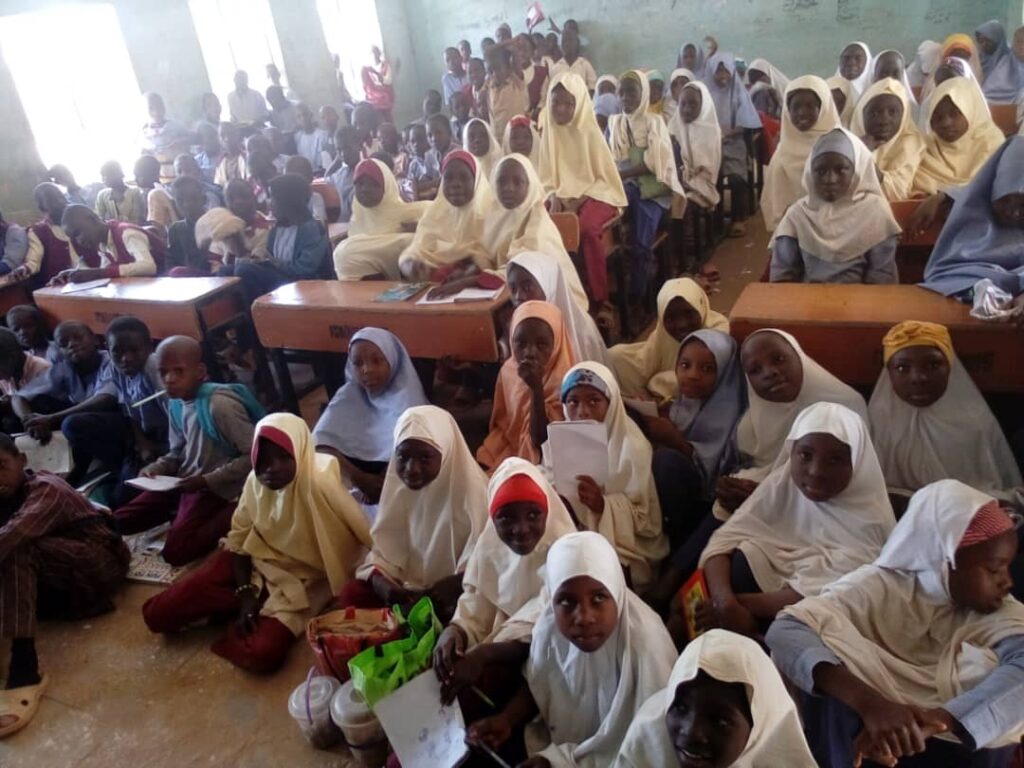
But otherwise, this was the case when The ICIR visited the school. Primary four and five pupils could be seen crammed into one classroom where the senior pupils were receiving mathematics lessons while their junior counterparts looked on idly.
HEADMASTERS DECIDE WHEN SCHOOLS OPEN
Headmasters and principals of Dagaro Primary/Upper Basic and Dohuwar Kura Primary/Upper Basic Schools in Katagum local area decide when their schools operate.
For instance, Dagaro Primary/Upper Basic School remains closed whenever the headmaster does not come around. Located along Bulkachuwa road, the blocks-classroom school has only two teachers — the headmaster and an Arabic teacher. This anomaly, parents told The ICIR, forced them to enrol their wards into schools in Bulkachuwa, a town quite far from Dagaro.
For two consecutive times that The ICIR visited the school, it was found locked. The resident told our reporter the headmaster closes the school before 11:00 am, sending willing-to-learn pupils home when they should be in school.
Expressing his grievances, Yusuf Adamu Dagaro, 20, a student of the school, said with about 70 pupils in the school, two teachers could be best described as inefficient for effective teaching.
In 2022, WikkiTimes Published 36 Investigative Stories, Here Are the Highlights
Adamu revealed that the headmaster comes from neighbouring Chinade village “and whenever he doesn’t come, pupils will have to play to their satisfaction before returning home.”
“What we can say about the school is Alhamdulillah,” said Adamu. “But the pupils are not many and the teachers too. From what we are seeing, the pupils are about 70, and the only teacher we used to see is the headmaster, who is from Chinade and the school used to close around 11:00 am.”
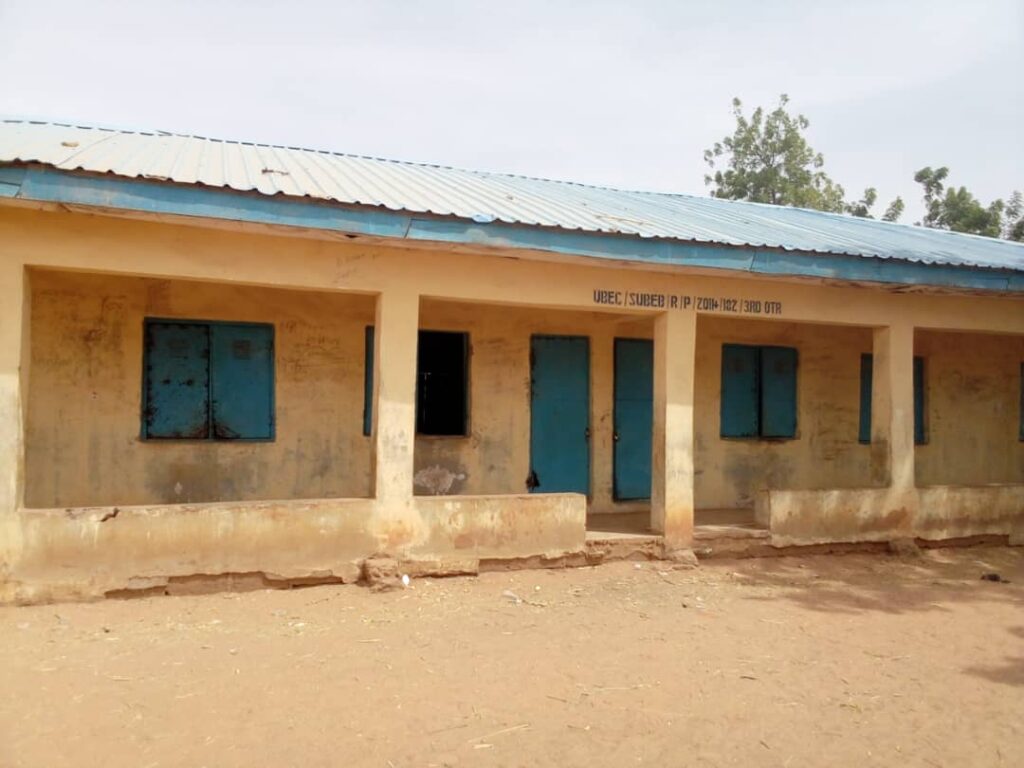
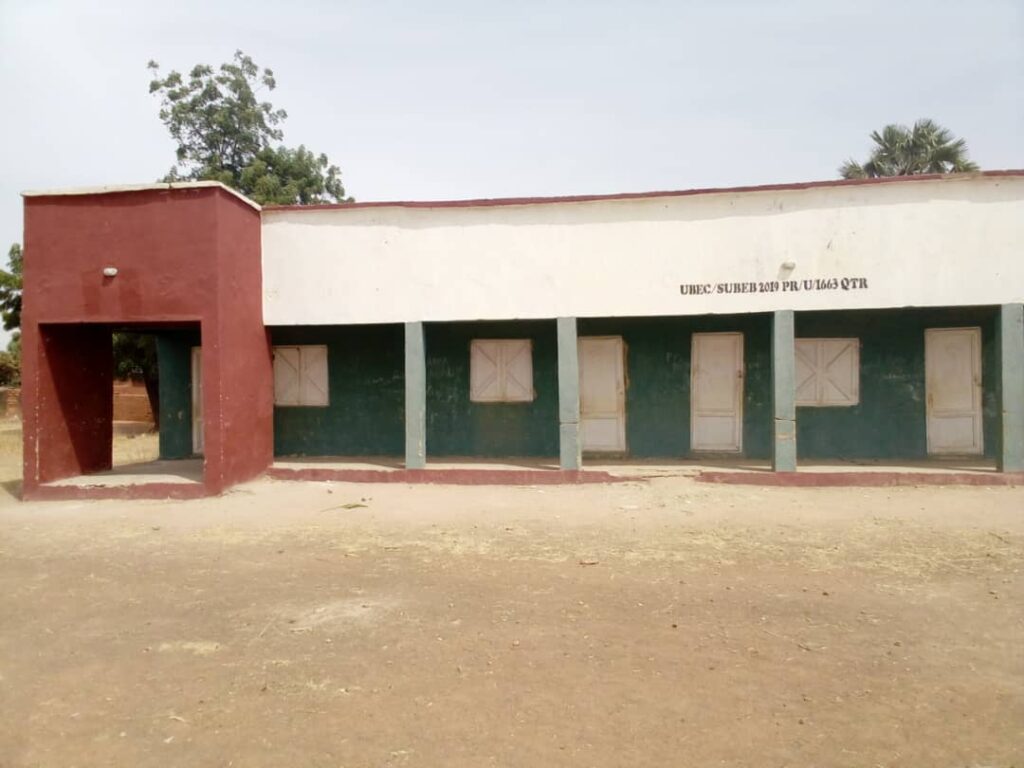
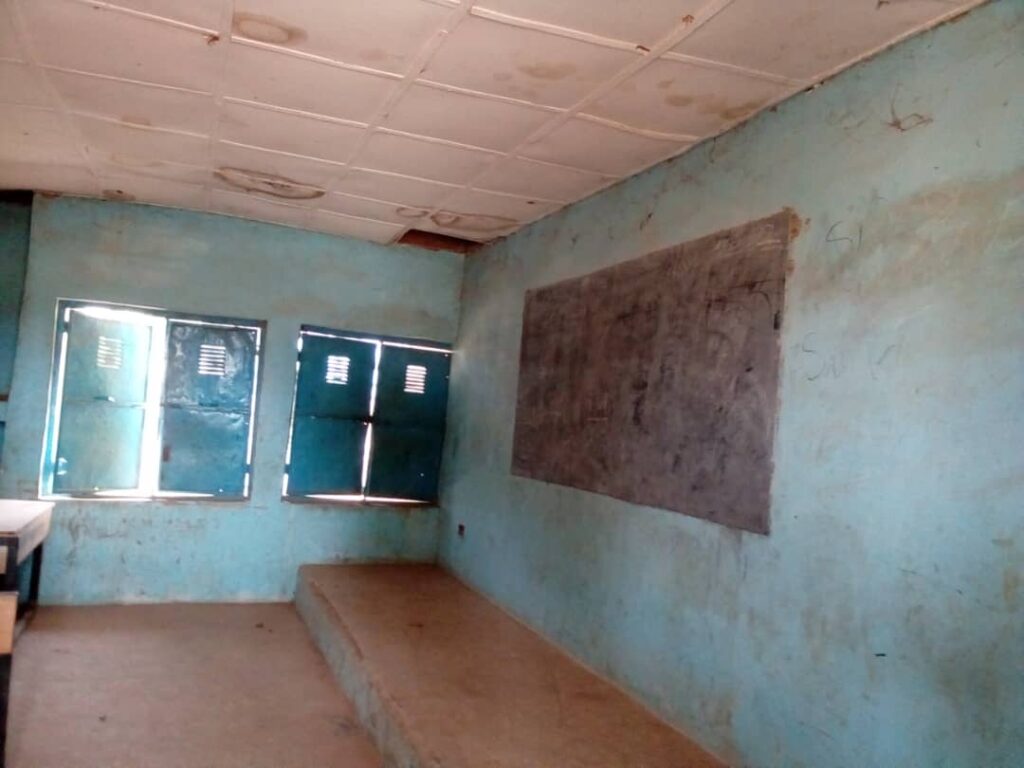
He added, “Any day the headmaster doesn’t come, this block you are seeing will be under lock, and the children will be playing or some senior among them will control them before going back home.”
Sulaiman Musa Dagaro, a father to one of the pupils, told The ICIR their children do not regularly attend the school due to the absence of teachers and abnormal closure of the school.
“How can you be sending your children to school where they cannot learn anything?” he queried. “It is painful to ask a child what he has learned in school, but he will answer nothing. This is what makes many of us lose confidence in our educational system. There is only one teacher that you will be seeing in the school, and sometimes even the village head laments about their truancy, but nothing changes.”
Dagaro lamented the lack of some basic instructional materials in the school. According to him, pupils often sit on bare floors to take lessons. He said the worries would have been less if the children truly learned from the teacher.
“Some of them cannot write their names,” he decried. “We are helpless, and our dreams of giving sound education to our children have died. What are we going to do when our children are not even learning anything?”
Sabo Dagaro, who graduated from the school two years back, said he only realised he was cheated during his primary days. This, he discovered after joining a secondary school in Bulkachuwa.
Just like the present situation, Sabo said only two teachers were attending to them during his primary school days, and the headmaster is the one who taught them every subject except Arabic.
Sabo said he weeps for the younger generation for passing through what he and his colleagues went through. He corroborated The ICIR findings about the headmaster’s unavailability.
“During our time, whenever the headmaster didn’t come, we only played or read some of our books and then went back home,” he said.
“It pains me a lot seeing the school with only two teachers. If I have the chance, I would change the situation here. In my new school, for instance, teachers are coming every day for different subjects, not only one teacher for all subjects,” Sabo added.
PLEAS FALL ON DEAF EARS
Several times, residents said they have complained to relevant authorities about the situation at the school, but their pleas had not been responded to.
The Wakilin Sarkin Dagaro, Ahmed Umar Abdullahi, told The ICIR the declining standard in the school discourages students from schooling.

He said the village had on several occasions went to the Local Education Authority (LEA) on the need to have teachers but his efforts proved abortive.
Abdullahi claims that many teachers who were transferred to villages do not report to the schools. “Inspectors would come, and we would complain to them, but it dies there. If our upper basic school, for instance, has a teacher who only comes three times in a term and we report to the inspector, but nothing changes, what would you think?”
“Teachers’ attendance is a factor that will make students come to school, but they also don’t come regularly,” he said. “The primary school used to close around 11 a.m., and the teachers most times closed due to the absence of students. The only time you see a high number of pupils is during food distribution by the vendors. The programme has been going halfway now because of insufficient money given to the vendors. But whenever they come, you will see a large turnout of students in the area,” said the village head.
The village head was referring to the federal government school feeding programme.
SITUATION NOT DIFFERENT IN DUHUWAR KURA SCHOOL
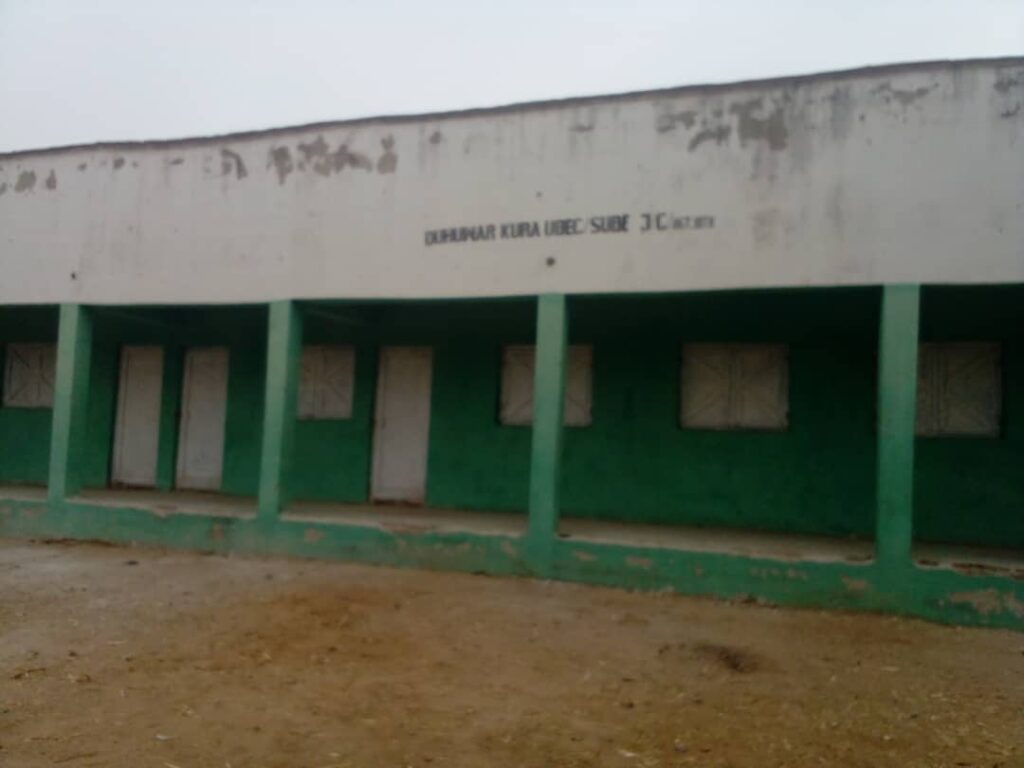
Just like the school in Dagaro, Duhuwar Kura Primary and Upper Basic School, along Gadau road in Katagum LGA, also suffers the same anomaly as the school’s leadership operates a skeletal system. They decide when students stay back home and vice versa.
During The ICIR’s visit to the school in February, some students playing on the school’s veranda said their principal left some hours earlier.
An octogenarian, Muhammadu Inuwa, Sarkin Magani Duhuwar Kura said his grandchildren have not been going to school because whenever they do, there would not be a teacher to attend to them.
According to him, he was forced to keep sending his grandchildren to empty classes. At times two or three teachers would appear in the school for “other businesses” different from teaching. The teachers, he said, come from Azare.
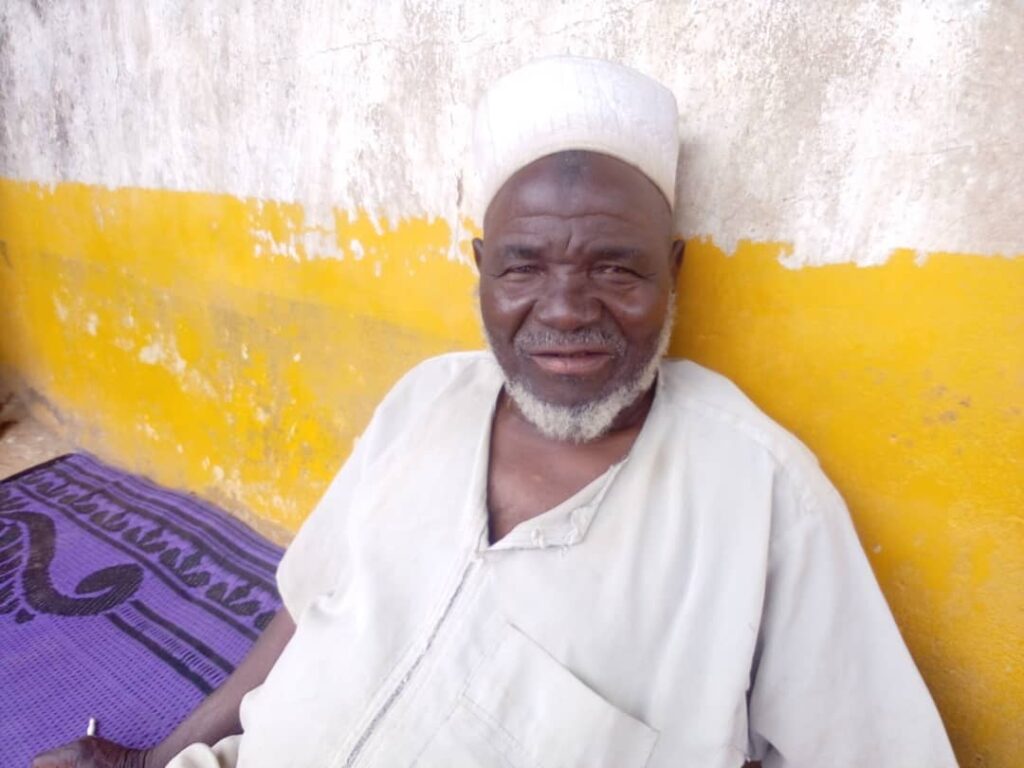
“I have since stopped sending my four grandchildren to school because all they do is play. The boys will play football, and the girls will play ‘gada’ — a local dance among girls in the area.
“If you ask them what they learn, they will tell you nothing because the teachers didn’t come or did not enter the classes to teach. Many have stopped coming and opted for Almajiri education. They are cheating our younger ones by not coming and doing their duties,” said Sarkin Magani.
The situation baffles Sale Ya’u, a volunteer teacher in the area who, out of sympathy for his village, took the task upon himself to save the situation.
According to him, in a day, “only 20 or fewer students attend school. He said the situation was compounded by a lack of supervision from the government and its failure to encourage enrollment of students in schools.
Ya’u revealed that supervisors hardly come from the Ministry of Education or Local Education Authority to supervise the school. “And when they do, they don’t take action against any teacher found wanting in the course of their responsibilities.
“The headmasters and principals can only advise teachers who abdicate their duties, because if they reported them to LEA, it is some people in the office that will tell the affected teacher that their principal has reported them and the case ends there,” Ya’u said while adding that , “So how can you expect a change in these situations where no disciplinary action will be taken by a principal or headmaster against an earring teacher because he has someone in the office?”
He added that “It is pathetic that people in Duhuwar Kura are not sending their children to school. The turnover of attendance is not up to 25 per cent, how can you expect our town to develop? This attitude as some parents said was a result of the insufficiency of teachers in the school and the level of poverty in the area. The government is also to be blamed because it doesn’t supervise, and even if there is, no positive result will be seen after such visits. A supervisor will come and find a teacher wanting, but they can’t discipline him.”
While pleading with parents not to withdraw their children from school, the Village Head of Duhuwar Kura, Abdulsalam Halilu, blamed the government for its failure to meet up their expectations.
“We used to have over 11 teachers in the school, but the present situation is not encouraging at all,” the village head said. “What is hurting me is that the children are not attending schools. Although I understand that there is a shortage of teachers, we cannot progress without education. For instance, we have been requesting for a health care center and let us assume we were provided, do we have people in Duhuwar Kura that will be employed there? No! We don’t and this is as a result of uneducated population among us.”
AUTHORITIES REACT
The Education Secretary for Katagum Local Education Authority, Adamu Alhaji Muhammed admits that the shortage of teachers is bedevilling many schools, especially primary schools across the local government.
Muhammad revealed that teachers who retired and died before retirement were not replaced by new ones, hence the shortfall. This, according to him, dates back to 2015. But many of the challenges are being addressed, he claimed.
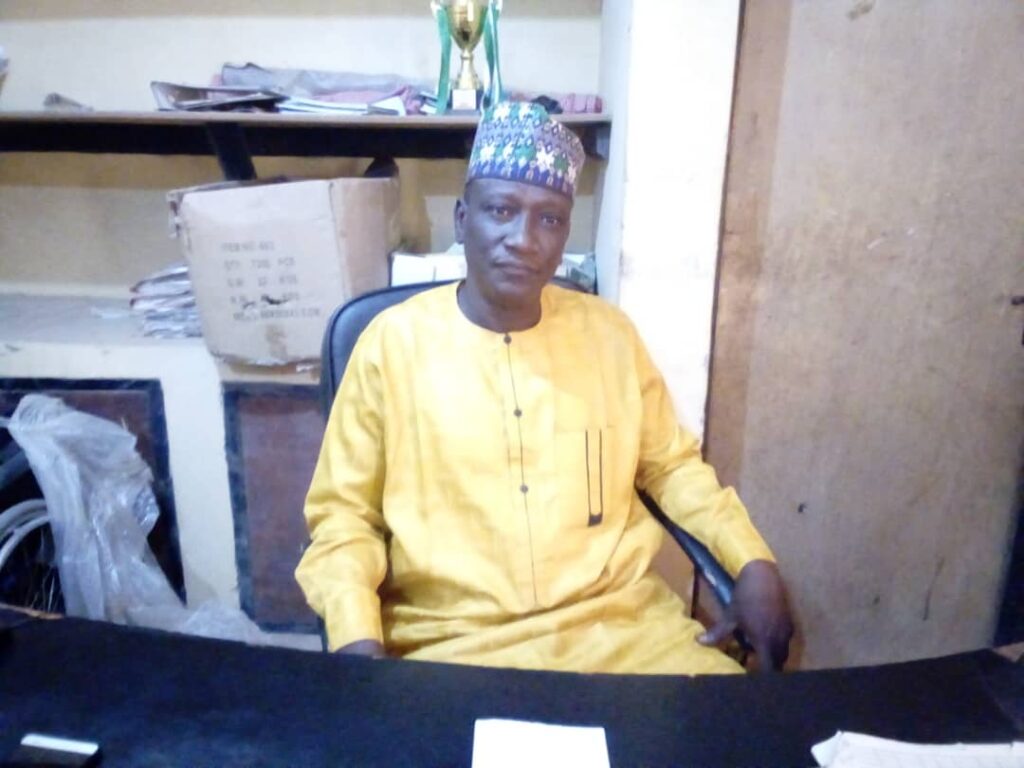
“We have a team comprising of Quality Assurance Officers and myself going round to schools to see what the teachers are doing. “Most times, we have strategies aimed at correcting abnormalities discovered during supervision in schools. Firstly we used to counsel the teachers to abide by the oath they signed while assuming duty and if it persists we take the next action,” he said.
Even though the Education Secretary did not clearly mention the number of teachers found wanting during supervision, he claimed that corrective actions taken against the teachers shape their conduct.
“We have zero tolerance to absenteeism on the part of the teachers. If we find out that people posted to rural areas do not report to their place of assignment, we do not take it lightly with them.
“The issue of having only a headmaster and an Arabic teacher in a village school is what is hurting me since I assumed office a year and a half ago. We have been requesting but no employment from the government.
“In some schools, you will find only one teacher, and this makes things difficult. This dearth of teachers is what makes volunteers to be teaching in our schools, and thank God we have over 300 volunteer teachers spread across the local government area,” he said.
He states that volunteer teachers are screened to ensure their intelligence and character suit the job.
“To me, I have never come across any reports of bad behaviour from the volunteer teachers and believe me, if there is, we will deal with such a person. Up to today, this office has not received any report of misconduct from the teachers and our doors are open to taking necessary action if there is,” he said.
Commenting on the dilapidating state of the schools, he said: “I find it difficult to control myself whenever I come across pupils sitting down on bare floors. The sudden breakdown of chairs and their inadequacy was from the contractors that were given contracts in some schools. They don’t deliver quality services and in the end, it is the children who suffer.”
The Public Relations Officer (PRO) for Universal Basic Education (SUBEB) in Bauchi State, Muhammed Abdullahi, said the agency is aware of the conditions in the rural schools. He, however, claimed that the government is working “so hard” to address them.
“If not all, the government has addressed at least 80 per cent of the problems,” he said. “The government is looking into the issue of inadequate teachers. Infrastructure, training and retraining of teachers and provision of instructional materials.”
Although volunteer teachers do most of the teaching in the schools, they are left out of the training programmes, Abdullahi explained, reiterating that the issue of inadequate teachers would soon be addressed.
This report was republished from the International Centre for Investigative Reporting (The ICIR), you can read the original here.




